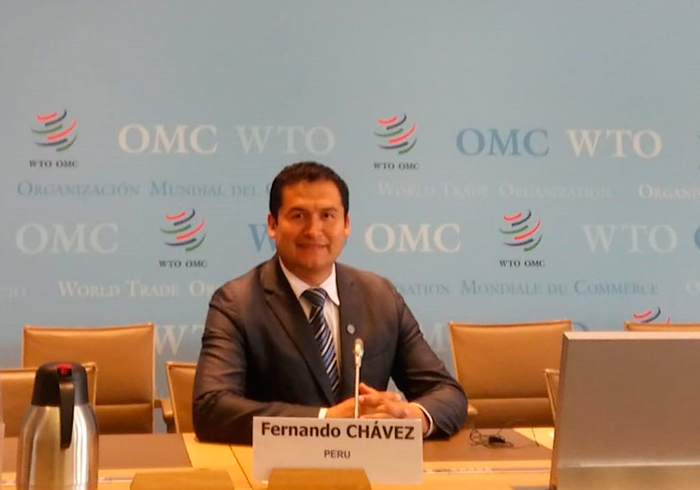
The Master’s Degree Final Project is based on the premise that in the framework of globalisation and glocalisation of exchanges, and the immediacy with which consumer conflicts arise, mechanisms are needed that meet the demands and needs of consumers in the field of face-to-face contracting and in the digital environment.
10 september 2020
Title: Legal Foundations that Justify the Regulation and Implementation of Mediation, Arbitration and ODR in Consumer Protection Matters by the Bar Associations and Notaries in Peru.
Author: Fernando Chávez Rosero
In that sense, it is considered that, as in the Peruvian case, the Consumer Protection System in Peru has been institutionally monopolised by the Instituto Nacional de Defensa de la Competencia y de la Protección de la Propiedad Intelectual (INDECOPI, Spanish for National Institute for the Defence of Competition and the Protection of Intellectual Property), which after more than twenty-five (25) years of administering consumer justice in Peru, is now unstructured and the implementation of ADR and ODR has not been carried out in a uniform manner throughout the national territory.
Thus, the epicenter of the legal and academic discussion focused on addressing the current reality of access to justice in consumer matters in Peru, assessing the existing channels to the state courts, with special emphasis on the role that can play in this new reality the Peruvian Bar Associations and Notaries, through their members.
In this sense, the Master’s Degree Final Project was organised in three chapters, which were divided into the following thematic areas:
The first chapter describes aspects related to consumer disputes in Peru and the need for accessible systems for their resolution. The national socioeconomic reality is analysed, as well as that specifically linked to the Cajamarca region and city, which is not unconnected to the national reality. From this perspective, the typology of consumer procurement in this area is considered, taking into account electronic procurement. And, by virtue of the elements described above, the type of disputes that can arise and the forms of alternative dispute resolution that the institutional consumer has, the question of how other types of alternatives could be implemented that include ADR and ODR in dispute resolution was considered.
In the second chapter the current regulatory and institutional framework for consumer protection in Peru is discussed. In which the organisation and functions of INDECOPI have been described and the specific procedures for the legal protection of the consumer have been identified. A critical appraisal of the institutional justice system is made, and the possible alternatives to the institutional monopolisation exercised by INDECOPI are analysed, as well as new ways to guarantee universal access to consumer justice.
In the third chapter the legal foundations that justify the regulation and implementation of mediation and arbitration, as part of ADR and ODR, in matters of consumer protection in Peru by the Bar Associations and Notaries are addressed. This is from the perspective of the right to access to justice, since it is considered that as long as this fundamental right is not guaranteed, it will be difficult to talk about the " Universalisation of the Consumer Protection System" and "Universalisation of Consumer Justice" in Peru.
Thus, it is considered that the legal foundations can be found in: 1) The right of universal access to consumer justice in Peru; 2) The right to legal security in the framework of consumer contracts; 3) The principle of contractual balance; 4) The State's duty to guarantee. The implementation of ADR and ODR in consumer and user matters by the Professional Associations of Lawyers and Notaries in Peru will allow us to be at the forefront of the demands and challenges that ADR always poses in the present 21st century and the increasingly flexible forms of dispute resolution that fulfil an effective and efficient function in favour of the consumer, in order to guarantee justice, social peace and the full validity of fundamental economic rights.













